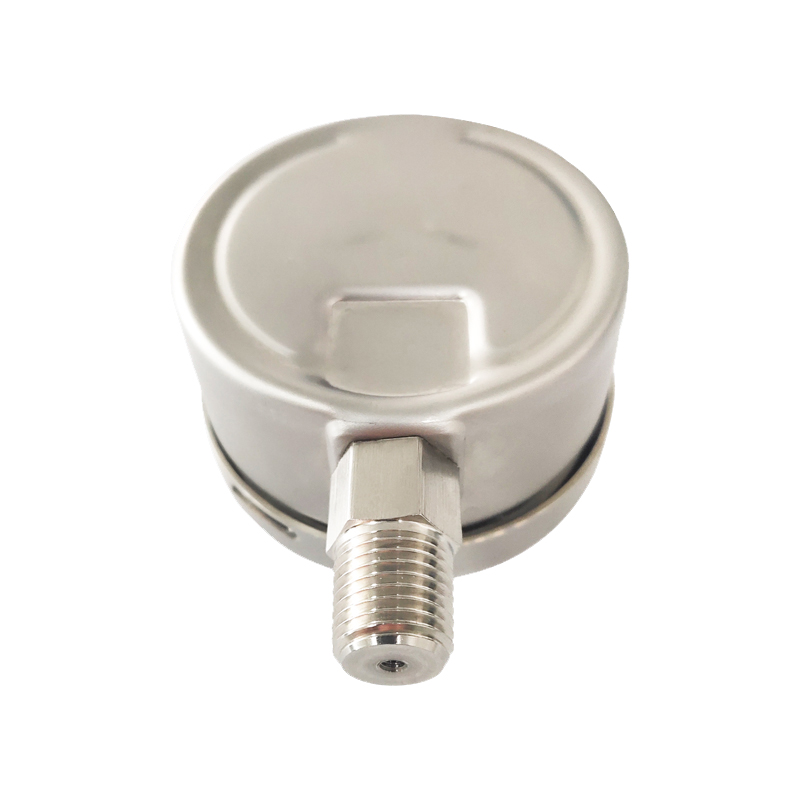
Dec . 16, 2024 15:26 Back to list
Diaphragm Capsule Pressure Gauge for Accurate Pressure Measurement and Monitoring
Understanding Diaphragm Capsule Pressure Gauges A Comprehensive Overview
Pressure gauges are vital instruments in various industries, from oil and gas to water treatment and pharmaceuticals. Among the many types of pressure gauges, the diaphragm capsule pressure gauge stands out for its unique design and functionality. This article delves into the working principles, advantages, applications, and maintenance of diaphragm capsule pressure gauges.
What is a Diaphragm Capsule Pressure Gauge?
A diaphragm capsule pressure gauge consists of a sensing element (the diaphragm) that is sealed within a capsule. This diaphragm is typically made of flexible materials such as stainless steel or other alloys that can resist corrosion and wear. The capsule is hermetically sealed, allowing it to measure pressure accurately without being affected by external contaminants.
When pressure is applied to the gauge, the diaphragm flexes, causing a deflection that is directly proportional to the pressure exerted. This movement is then transmitted to a needle on a dial or an electronic readout. As a result, users can easily read the pressure in the system they are monitoring.
Working Principle
The principle behind a diaphragm capsule pressure gauge is relatively straightforward. When the pressure inside the system increases, it acts on the diaphragm. The deflection of the diaphragm can be converted into a mechanical movement, which is then amplified and displayed on a gauge. This mechanical movement may also be transmitted to an electronic system for digital readings, allowing for a high degree of accuracy.
One of the key advantages of this design is its ability to measure low-pressure applications effectively. The diaphragm's sensitivity allows it to detect even the slightest fluctuations in pressure, making it ideal for applications that require precise monitoring.
Advantages of Diaphragm Capsule Pressure Gauges
1. Accuracy and Sensitivity Diaphragm capsule gauges are renowned for their high accuracy, particularly in low-pressure scenarios. This sensitivity is crucial in processes where minor fluctuations can lead to significant operational issues.
2. Durability and Resistance The materials used in constructing diaphragm gauges, like stainless steel, provide excellent resistance to corrosion and mechanical wear. This durability makes them suitable for demanding environments such as chemical processing or oil refineries.
3. Versatility These gauges can be used with various fluids, including gases and liquids, without the risk of damage or contamination. They can be tailored to specific applications by adjusting materials and design.
diaphragm capsule pressure gauge,

4. Sealed Design The hermetically sealed design not only protects the internal components from environmental factors but also minimizes the risk of leakage, which is critical in many industrial processes.
5. Ease of Installation and Use These gauges are generally easy to install and operate, making them a preferred choice for many industries.
Applications
Diaphragm capsule pressure gauges are widely used across multiple sectors, including
- Food and Beverage Their hygienic design is essential in applications where contamination must be avoided. - Pharmaceuticals Accurate pressure monitoring is critical for processes in drug manufacturing. - Water and Wastewater Management They are utilized in monitoring the pressure within treatment plants and distribution systems. - Oil and Gas These gauges are used to monitor pipeline pressures, ensuring safe operation.
Maintenance of Diaphragm Capsule Pressure Gauges
Regular maintenance is necessary to ensure the longevity and accuracy of diaphragm capsule pressure gauges. Here are some best practices
1. Calibration Periodically calibrate the gauge to verify its accuracy. This step is crucial, especially in industries where precision is paramount. 2. Visual Inspections Regularly check for any signs of wear or damage to the diaphragm and casing. Any visible defects should be addressed immediately.
3. Cleaning Depending on the application, cleaning the gauge may be necessary to prevent contamination and ensure accurate readings.
4. Documentation Keep records of all maintenance activities, including calibrations and repairs, to track performance over time.
Conclusion
Diaphragm capsule pressure gauges play a significant role in various industries due to their unique combination of reliability, sensitivity, and versatility. Understanding how they work, their advantages, applications, and maintenance requirements can enhance their usage and help in making informed decisions when selecting pressure measurement instruments. As industries continue to evolve, diaphragm capsule pressure gauges remain essential for ensuring operational efficiency and safety.
-
High-Precision 5 Valve Manifold Differential Pressure Gauge Suppliers
NewsApr.29,2025
-
High-Precision Diaphragm Vacuum Pressure Gauges Manufacturers & Quotes
NewsApr.29,2025
-
Omega Differential Pressure Gauges High Accuracy & Durability
NewsApr.28,2025
-
Low Pressure Differential Pressure Gauges Precision Solutions & Quotes
NewsApr.28,2025
-
Digital Diaphragm Pressure Gaauge Precision Measurement & OEM Quotes
NewsApr.28,2025
-
Differential Pressure Gauge China Price High-Accuracy & Best Quotes
NewsApr.28,2025
